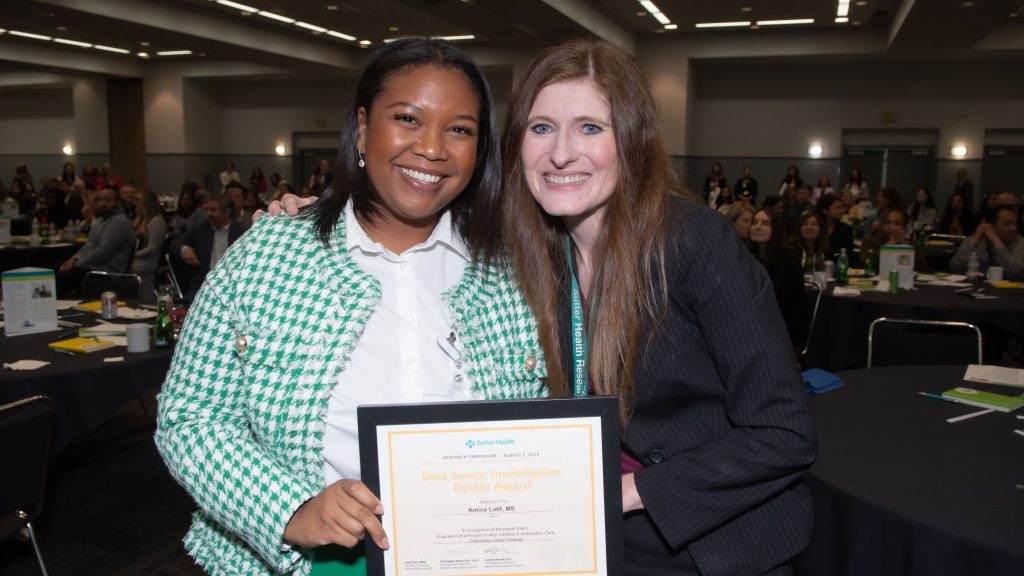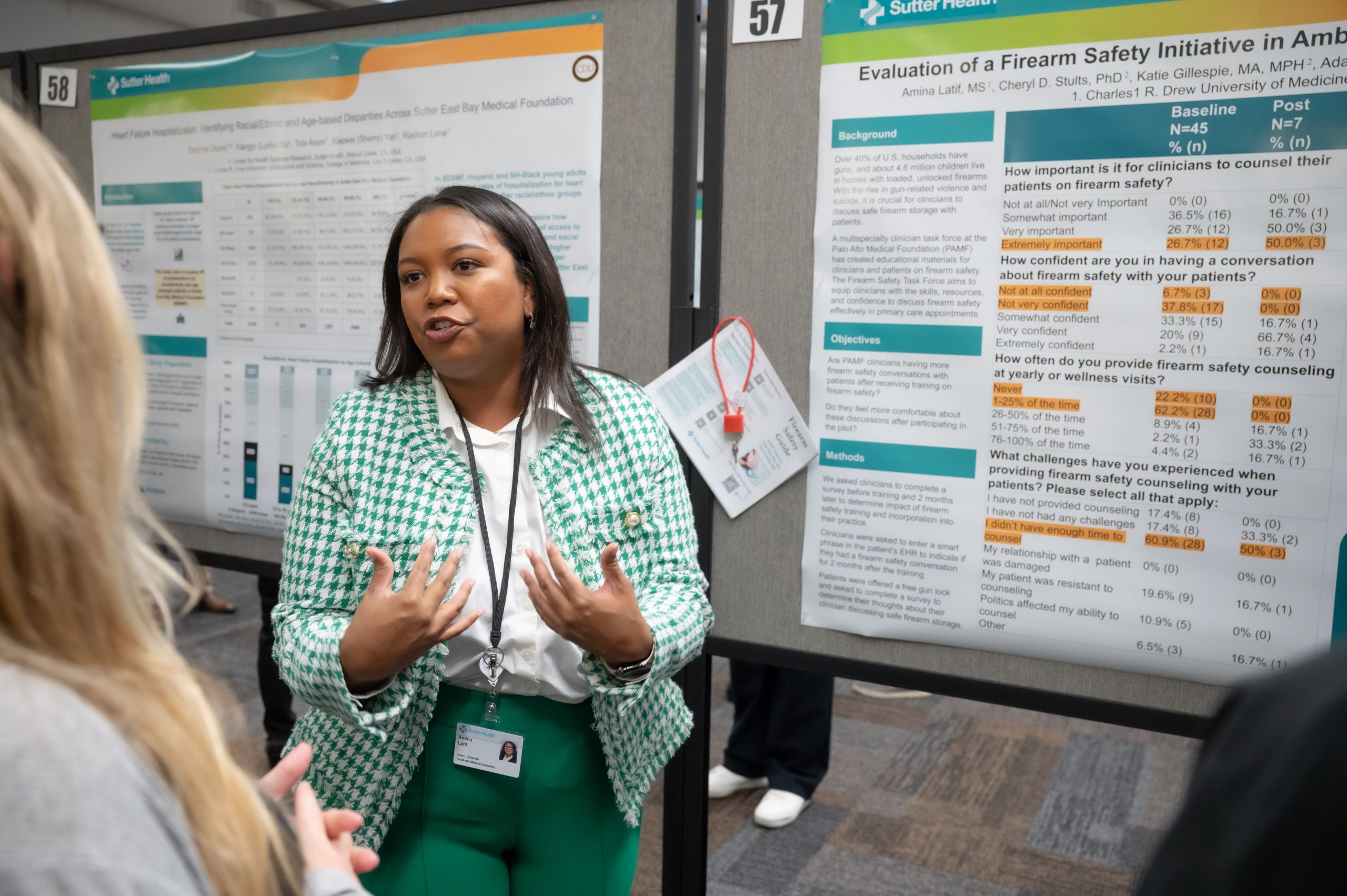Summer is the perfect time for exploring. Sorting through seashells on the sand. Hitting the open road with the windows down. Listening to an artist you’ve just discovered at an outdoor music festival. But for Amina Latif, a second-year medical student from Charles R. Drew University of Medicine and Science, exploration took on a different meaning this summer.
As a future doctor trained to ask “why” and “how,” Latif jumped at the chance to take an elective research program designed to accelerate health equity research into clinical practice. And the project she supported might potentially help curb what the U.S. surgeon general Dr. Vivek Murthy recently declared as a public health crisis: gun violence.
“My experience conducting research at Sutter Health was truly invaluable. I’m deeply grateful for the friendships I formed and the impactful experiences that have shaped my path toward a career in medicine,” she said. “This summer not only solidified my commitment to advocating for underserved communities but also deepened my understanding of the critical need for firearm safety practices and reform. It was an unforgettable journey that has prepared me for the challenges and responsibilities ahead.”
Latif helped support a pilot project spearheaded by Dr. Nicole Sudduth. The internal medicine doctor with Palo Alto Foundation Medical Group in Santa Cruz created a clinician taskforce which developed an opportunity for clinicians to have more conversations about safe firearm storage with their patients. Dr. Sudduth partnered with the research team to help answer a few questions including: Are clinicians having more firearm safety conversations with patients after receiving training on firearm safety? Do they feel more comfortable about these discussions after participating in a pilot training program?
The pilot is still ongoing, but some initial results showed promise and provided valuable information to help inform safer firearm practices. Clinicians were more confident and started having more conversations with their patients about firearm safety after their training. However, some clinicians still expressed concerns, which indicated more work is needed to see where additional improvements can be made. Additionally, many patients strongly agreed it was “acceptable” for their clinician to speak with them about safe firearm storage. One particularly interesting aspect of the research was that patients were offered a free cable gun lock during their doctor’s visit, which in several instances helped create a safe space to have the conversation.

Amina Latif and Dr. Cheryl Stults pose with her best junior investigator award she earned at Sutter Health’s second annual Research Symposium.
Dr. Cheryl Stults, a senior researcher with Sutter who mentored Latif this summer and is leading the pilot evaluation, says the goal of the program is to create an introductory experience to research for the medical students. The summer program offered a taste of different project aspects such as developing a research question, information about basic statistical and qualitative methods, manuscript writing, etc. Stults pointed out that medical students will later need to conduct research during their third and fourth years of medical school. Exposure to research in electives such as Sutter’s can help foster an ongoing spirit of focused curiosity and inquiry, and position these medical students for lead clinical research in the future.
As part of the project, Latif helped find published research related to firearm safety. She learned how to choose which information to include from different data sources and how to format the results. She even took lead on developing a poster, a commonly accepted format of how researchers present their findings. To her delight, Latif won the Best Junior Investigator award for her poster at Sutter Health’s second annual research symposium held Aug. 2 in South San Francisco, Calif.
Latif was one of six medical students from Charles R. Drew University of Medicine and Science to participate in the inaugural summer research elective program. Other features of this summer’s program included community service events conducting HIV rapid testing, blood pressure screenings and sleep education in Oakland and Berkeley. The summer research interns also had the chance to observe Sutter clinicians in primary care, internal medicine, orthopedic and surgical care, as well as psychology, across the Bay Area. The summer research elective is one aspect of the Health Equity Alliance for Research & Evaluation incubator lab. HEARE is part of a long-term collaboration between the university and Sutter Health to expand access to a more inclusive and equitable research in healthcare.
“It was powerful witnessing these students as they immersed themselves into health services and clinical research and were able to see how research impacts clinical care,” said Dr. Rashon Lane, senior health equity scientist at Sutter Health who led the summer research program. “It was such a joy mentoring the next generation of clinician scientists. We hope this experience provides a foundation from which these future leading physicians will continue seeing how research plays an important role in patient care and public health.”





